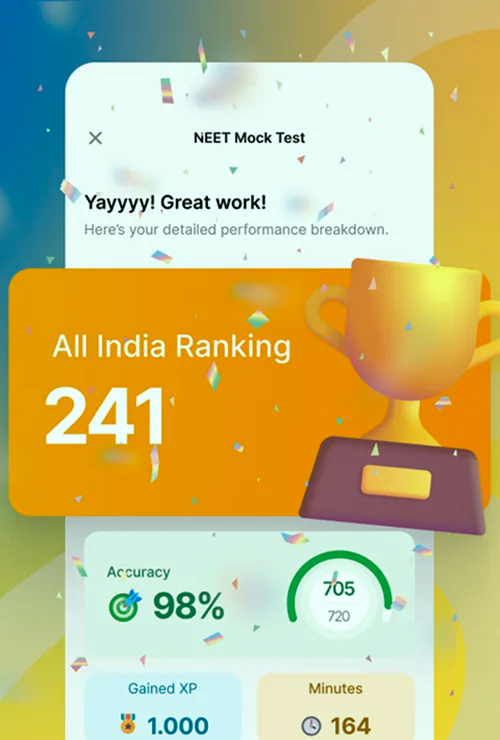General Information
Goa University (GU) is the primary public State University in Goa, established in 1985 by the Goa University Act. Its origins trace back to the Centre for Post-Graduate Instruction and Research (CPIR), set up by the University of Mumbai in 1962 after Goa's liberation.
As Goa's sole university, it functions as a teaching-cum-affiliating institution. It runs numerous postgraduate departments on its main campus and serves as the academic authority for all affiliated colleges (numbering over 50) across the state, including those for general education and professional courses.
Key Recognitions:
Established by a State Act and recognized by the University Grants Commission (UGC) under Section 12(B).
Accredited by the National Assessment and Accreditation Council (NAAC) with an 'A+' Grade (as of July 2024).
Ranked by NIRF in the 51-100 band for State Public Universities and 151-200 band for the overall University category (2024/2025).
MCI Recogination
Recognized for 100 seats. Recognized for increase of seats from 100 to 150 when degree granted on or after January, 2017. Permitted for increase of seats from 150 to 180 under EWS quota (103rd constitution amendment) for 2019-20. Continuation of Recognition of 150 MBBS seats granted for five (05) years when degree granted upto February, 2028. Annual renewal permission granted for 180 MBBS seats for AY 2024-25. LOP granted for increase of Intake 20 MBBS Seats (180-200) for the A.Y. 2024-2025.
Campus Facilities
The Campus: A Scenic Hub on Taleigao Plateau
Goa University's main campus is renowned for its beautiful location.
Location: Situated on the Taleigao Plateau, overlooking the Zuari river estuary, near Panaji (Panjim), Goa.
Campus Size & Vibe: The campus is vast, spread over 400+ acres. It's known for its scenic, open, and green environment, offering a tranquil academic atmosphere with sea and river views.
Infrastructure & Facilities:
Academic Schools/Departments: Dedicated blocks house its 10 schools (e.g., Goa Business School, Manohar Parrikar School of Law, School of Biological Sciences, School of Earth Sciences).
Central Library: A large library with extensive physical and digital resources (textbooks, reference books, e-journals).
Laboratories: Well-equipped labs for all science, technology, and computer science departments.
Residential Life: Separate hostel facilities are available for boys and girls, primarily for postgraduate and research students.
Amenities: Health Centre (medical clinic), bank (State Bank of India) & ATM, post office, auditoriums, canteens, convenience stores, and comprehensive sports facilities (400m track, football, basketball, volleyball, etc.).
Hospital & Medical Facilities
Leading tertiary care hospital attached to the institution
Healthcare Connection: Affiliating Role for Medical/Dental
It is crucial to understand Goa University's role in health education; it is purely affiliating.
No Constituent Medical College: Goa University does not have its own constituent Medical College offering the MBBS degree, nor does it operate its own large general teaching hospital for this purpose.
Affiliation Role: The university acts as the affiliating university for the state's premier government health institutions, which are located nearby in Bambolim. This includes:
Goa Medical College & Hospital (GMC): One of Asia's oldest medical schools (est. 1842), it is affiliated with Goa University for its MBBS, MD/MS, and other paramedical degrees.
Goa Dental College and Hospital
Goa College of Pharmacy
Institute of Nursing Education
Health-Related Programs (On Campus): The university's own campus offers strong programs in Life Sciences (Biotechnology, Microbiology) and Chemical Sciences (Chemistry), but not direct clinical (MBBS/BDS) training.
Fee Structure
State University Affordability
Fee Structure: State University Affordability
Being a state university, Goa University's fees for its regular, government-aided programs on campus are extremely affordable. Fees at affiliated private/self-financed colleges (especially for engineering) will be higher.
City Details
Hostel & Mess
Campus Living: Highly Affordable Hostel Accommodation
Goa University provides residential facilities, primarily for students enrolled in its on-campus (mostly PG) programs.
Availability: Yes, the university has separate hostel blocks (e.g., 3 for boys, 2 for girls) on its main campus. Allotment is highly sought after and based on merit, category, and distance.
Facilities: Hostels offer basic furnished accommodation (typically 2-3 sharing rooms), common rooms, dining halls (messes), 24/7 security, warden supervision, and essential amenities like water coolers.
Mess System: Each hostel typically operates its own mess, providing regular meals (including Goan food).
Cost: As a state university, the hostel and mess fees are extremely economical. Expect annual hostel fees (rent, electricity) to be very low (e.g., ~₹6,000 - ₹9,000), plus a refundable security deposit. Mess charges are separate and paid monthly based on actual expenses, but are also known to be very reasonable.
Miscellaneous
Admissions & Career Pathways: GU-ART & State/National Tests
Getting Admitted:
Goa University Admissions Ranking Test (GU-ART): This is the primary entrance test conducted by Goa University for admission to most of its on-campus Postgraduate (PG) programs (MA, MSc, MCom, MCA, etc.).
CUET: Goa University has adopted CUET-UG for its on-campus UG programs (like BA, B.Sc) and CUET-PG for some PG programs, but GU-ART remains critical. Check the latest admission notification for the specific test required.
MBBS / BDS / MD / MS / MDS (Affiliated): Admission is strictly based on rank in NEET-UG or NEET-PG/MDS. Counselling is managed by the Directorate of Health Services (DHS), Goa.
B.Tech (Affiliated): Admission to affiliated engineering colleges (like GEC, Don Bosco) is based on JEE (Main) scores and/or the Goa Common Entrance Test (GCET). Counselling is managed by the Directorate of Technical Education (DTE), Goa.
MBA (On Campus): Admission is based on scores from national tests like CMAT or ATMA, followed by university counselling (GD/PI).
LLB (Affiliated): Admission is often based on the university's Goa University-Common Law Admission Test (GU-CLAT).
Affiliated Colleges (BA/BSc/BCom): Admissions are typically managed by the colleges themselves, based on merit in the Class 12 examination.
Career Support (Placements):
Focus: Goa University has a placement cell, and individual departments (like Goa Business School) have active placement efforts. Career paths for graduates are diverse, including state/central government jobs (GPSC, UPSC, Banking), teaching positions (NET/SET/B.Ed), research careers (especially in marine sciences/biotech, leveraging nearby institutes like NIO), and employment in Goa's key industries (Tourism, Pharma, IT, Mining).
Campus Placements: Direct campus placements are most common for professional courses like MBA, MCA, B.Tech/M.Tech (from affiliated colleges), and M.Sc (Biotech/Marine Science).
Recruiters: Recruiters often include Goa-based IT companies (Wipro, TCS, Infosys), pharmaceutical firms (Cipla, Suzlon), banks (HDFC, Chegg India), and hospitality groups (Taj, Oberoi, Grand Hyatt for affiliated Hotel Management courses).
Outcomes: Placement success varies. The median package for PG (2-year) programs (like MBA/MSc) was reported around ₹3 LPA - ₹4 LPA in NIRF 2024. The highest packages (especially from affiliated engineering colleges) can go up to ₹8 LPA - ₹15 LPA.
Information for NRI / Foreign Nationals
Goa University has a dedicated International Students Cell and provisions for foreign/NRI students.
Collage Images Gallery
Facilities & Campus Life
Well-equipped Library
Experienced Faculty
Computer Lab
Sports Activities
Heritage Campus
Frequently Asked Questions
Why Consult With Us?
- 15+ years of experience in medical education counseling
- 5000+ students successfully guided
- 50+ partner universities worldwide
- Free initial consultation with no obligation














